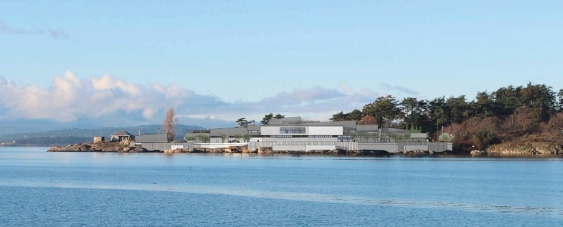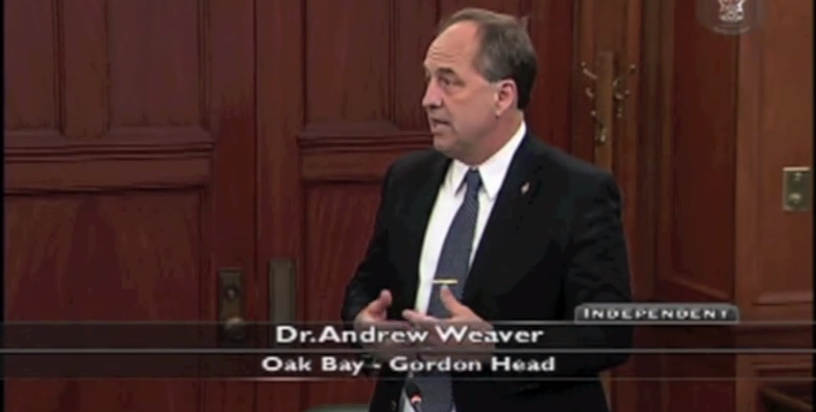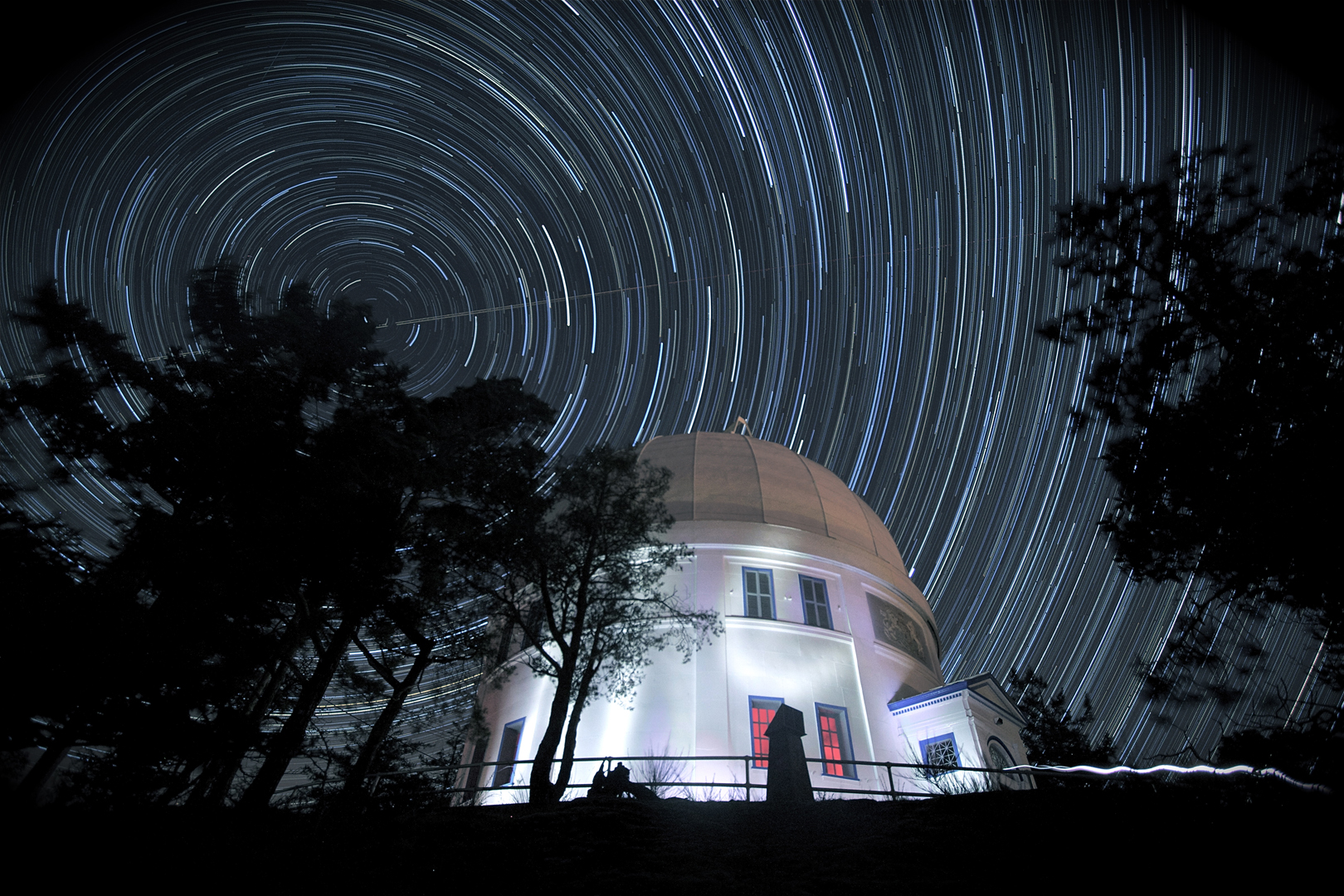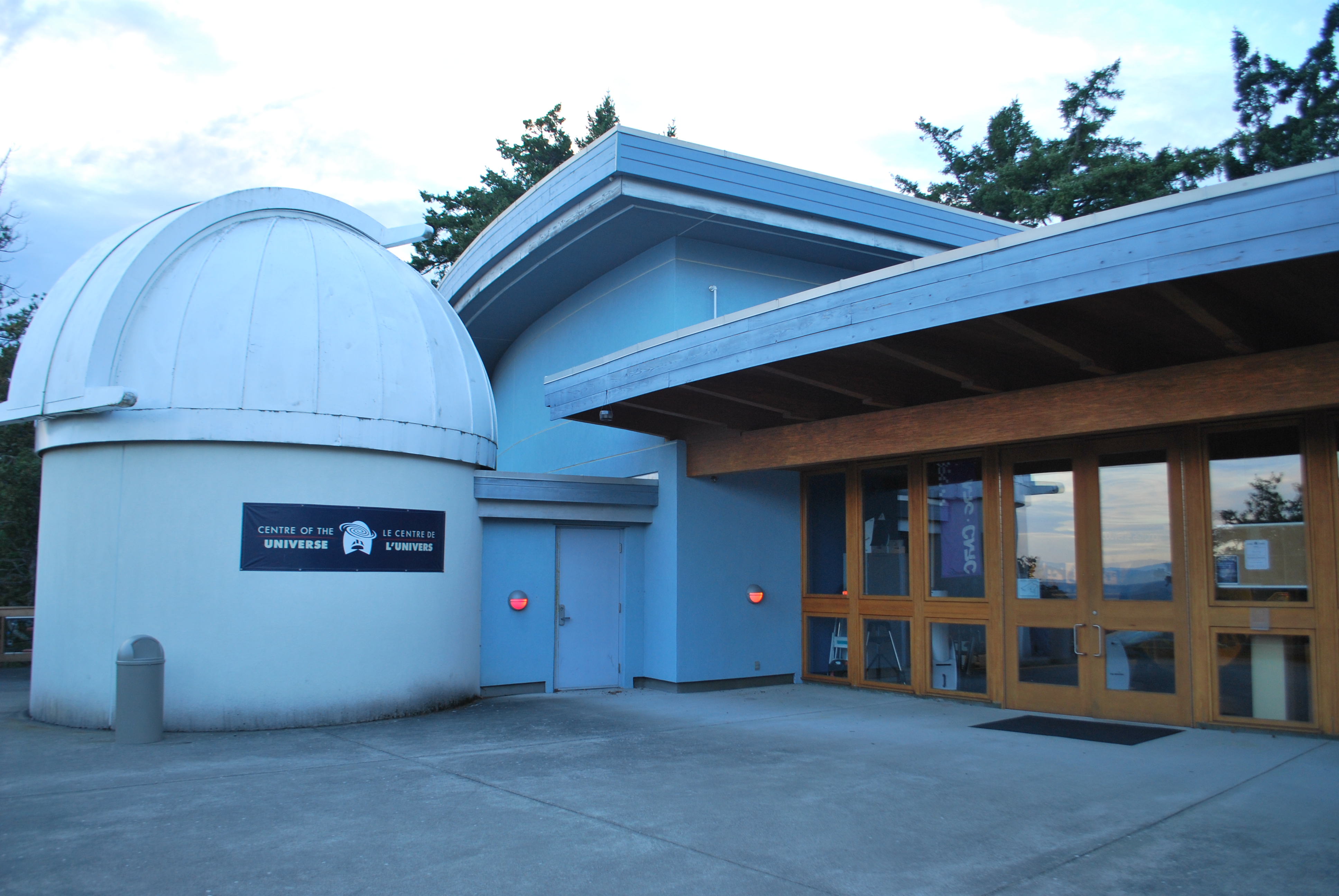Local Government
Town Hall: Towards a Better Sewage Plan
It is an issue that affects the entire Capital Regional District, and the largest, costliest infrastructure project in our history. The $783 million proposed CRD (now re-branded as Seaterra) secondary sewage treatment plan will potentially see treatment plants built at the entrance to Victoria Harbour in Esquimalt, at Hartland and with a twinned 18km pipeline connecting the two. Yet, despite assurances from the CRD that the program will come in on time, on budget and meet the needs of the region, vocal opposition from community groups, Esquimalt council, and residents around Hartland have called into question the integrity and costs of the plan.
Is there are better way forward, and if so, how can we get to a cost effective sewage plan that meets the region’s needs for now and the future? This will be the focus of a Town Hall featuring panelists with knowledge and experience of the CRD sewage program, and the local municipal political scene.
Tuesday, January 14th from 7 to 9pm
Oak Bay Recreation Centre Lounge, 1975 Bee St.
Everyone Welcome
Panelists are: Chris Corps, co-founder and CEO of Pivotal IRM Inc. (Integrated Resource Management); Lisa Helps, City of Victoria Councillor; Richard Atwell, director of The Rite Plan. The presentations will cover where the current CRD plan stands now, the elements, benefits and costs of a better plan, and the potential routes towards achieving that goal.
This will be followed with a public question and answer period. The evening will be moderated by Andrew Weaver.
Andrew Weaver spoke today at the Union of British Columbia Municipalities Convention in Vancouver
Andrew Weaver — UBCM Speech
September 19, 2013
Two years ago, if someone had said to me that I would be standing before the UBCM as Deputy Leader of the Green Party of BC and elected MLA for Oak Bay Gordon Head, I would have told them that they were crazy. But here I am, and what a thrilling journey it has been.
May 14, 2013 saw a change in BC’s political landscape. It saw the emergence of another choice for the voters of British Columbia. The Green Party of BC offers British Columbians a new vision for our future — A vision that transcends the traditional political boundaries spanning the right versus left spectrum. It is a vision for a compassionate society that lives within its means while preserving the environment around us. It is a vision that guides us to think about the long-term consequences of the decisions we make today.
The transition from scientist to Green Party of British Columbia politician hasn’t been as difficult as I thought it would be. In science, we identify a problem or challenge and seek a solution to that problem or challenge based on the available evidence. We don’t start with the solution and seek evidence to support it after the fact.
The Green Party of BC is a solutions-oriented party — one that fundamentally believes that policy should flow from evidence. I like to call this evidence-based decision-making, as opposed to what happens too often in politics today — decision-based evidence making.
For the Green Party, being a member of the opposition is about more than opposing government policy for the sake of it — it’s about addressing the issues and working in a non-partisan fashion to advance good policy.
The fact is, very few of the important challenges facing our society can easily be placed within the traditional left-right political spectrum. Addressing these challenges requires us to come together from across the political divide. It requires us to cooperate and collaborate across all levels of government. And it requires us to develop a social license before, not after, a policy pathway is chosen.
The Green Party of BC believes that small business is the engine of our economy. We believe that basing budget projections on hypothetical LNG revenues is to risk subjecting BC’s economy to the boom and bust roller coaster of global fossil fuel pricing, with all its twists, turns and drops. To attempt to lay all our eggs in this one basket, in the hope — the desperate hope — that we will be the one exception — the one jurisdiction that will defy history and economics— is to base our future on very unstable ground.
Yet even if we defy the odds and coast through the boom and bust cycles, we cannot achieve our provincial greenhouse gas targets while we double down on LNG. We will have no choice but to abandon our continent-leading climate commitments. That’s not politics — it’s science. And the numbers just don’t add up. The greenhouse gas emissions associated with LNG development are simply too high to allow us to meet these targets.
I believe our province is headed in the wrong direction, and it is up to us to redirect its course. We’re following a path fraught with risk. It’s a pathway that puts the interests of major multinational energy corporations motivated by short-term profit ahead of British Columbians and their long-term interests. My question to you is this: Will BC’s hypothetical, risky adventure into LNG actually benefit your communities in the long-term? I think not.
And I think talk of BC becoming a major LNG exporter is nothing more than a pipedream.
Canada has less than 1% of the world’s proven natural gas reserves.
Russia has about 20 times as much natural gas as all of Canada combined and recently signed long term export agreements with China. Russia can transport its gas to China via pipeline and does not need to undergo the costly process of liquefying the gas for tanker transport.
Australia has similar-sized shale gas reserves as Canada and is much further ahead in the development of its LNG industry. Yet several of their new projects have been put on hold citing concerns over cost.
The United States has more than twice the shale gas reserves as Canada and the US government recently decided to allow natural gas export. The US already has some of the necessary infrastructure in place on their coastline to facilitate a relatively quick development of an LNG export industry.
China could soon be well positioned to take advantage of its own natural gas reserves, which are 3 times the size of Canada’s.
The fact is, we need to grow and stabilize our economy. But the government’s solution will not do this — it will not address this economic challenge. Nor will it address the challenge that Stephen Lewis just yesterday described as the greatest threat that we face today — climate change.
So here’s another solution. We don’t have to go all in and then double-down on LNG. We could invest in the economy of tomorrow instead of the economy of yesterday. We could follow the leadership of Germany, California and now the United States as a whole or even China. We could position ourselves as leaders in the clean tech sector – the sector responsible for the generation, transportation, storage and end-use of renewable energy. This is a sector that creates stable, high paying, jobs in communities throughout British Columbia, not just in one or two locations.
We already have the industry, the expertise and the capital, and we were once considered emerging leaders in this area. But now what we lack is clear government leadership. In the US, for example, job growth in the clean tech sector is growing at four times the rate of all jobs. And that’s a Jobs Plan you can take to the bank.
Stable, local jobs give rise to vibrant, resilient municipalities. Yet, building strong municipalities is about more than making smart economic choices at the provincial level. It is also about ensuring that municipal governments are empowered to make the investments their communities need. It is about asking ourselves: “How do we finance our municipalities now and how might we better finance them in the future”.
No one knows this better than our new interim leader, Adam Olsen, a former municipal councilor from Central Saanich.
The Green Party of BC is delighted by the unanimous UBCM vote yesterday in support of the Strong Fiscal Future Policy Paper. We also believe that it’s critical to immediately initiate a provincial dialog on the future of municipal financing. Is continuing to burden homeowners with property tax increases year after year really the best approach? Or, could provincial and municipal governments instead work together to create a more progressive financing system that promotes, instead of impedes, the type of fundamental economic activity that we all value, such as buying a home.
I’m asking everyone in this room to consider working together to find real solutions to the important problems that face us today. When Stephen Lewis says that we have the most lunatic political culture in Canada we all laugh. But quite frankly, I think we should all be ashamed.
While I may disagree with the government in their approach to LNG, I am committed to work with them to find more practical solutions for the betterment of all British Columbians. There is a lot of work to be done and a lot of potential to be realized. But together, we can move our communities forward by investing in stable, local jobs and strong municipal governments.
Achieving this goal requires hard work and cooperation across all levels of government, willingness to work across political differences and a focus on evidence-based decision-making. It’s not going to be easy, but it is possible. Together, let’s forge this path to the future.
Thank you and thank you to the UBCM for giving me the opportunity to present to you today.
Province Flexible on CRD Sewage Project
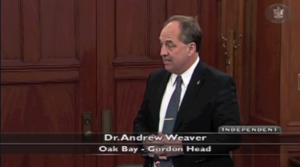 As the residents and taxpayers of the Capital Regional District review the current plans on sewage treatment, more questions arise with fewer answers available. Over the past few months Esquimalt council rejected the View Field site for a proposed bio solids plant, proposals from third parties for potentially suitable treatment sites and alternative project plans have been seemingly rejected out of hand or ignored, while some members of the CRD Liquid Waste Management Committee and CRD Board are saying in the media the current plan must go ahead due to provincially mandated completion deadlines.
As the residents and taxpayers of the Capital Regional District review the current plans on sewage treatment, more questions arise with fewer answers available. Over the past few months Esquimalt council rejected the View Field site for a proposed bio solids plant, proposals from third parties for potentially suitable treatment sites and alternative project plans have been seemingly rejected out of hand or ignored, while some members of the CRD Liquid Waste Management Committee and CRD Board are saying in the media the current plan must go ahead due to provincially mandated completion deadlines.
The fact is, those dates are flexible. During budget estimates in the House this July, Andrew Weaver asked The Minister of the Environment Mary Polak if the CRD would be held to the 2016 completion deadline…
The Minister’s answer should be the ‘open door’ the CRD, and residents, are seeking – an opportunity to take a pause, review the plans and costs, re-engage the community and move forward with a project that meets the values and needs of the region. In addition, The Minister of Community, who will distribute the funding, indicated she is open to extending the timeline. While the province is suggesting the 2020 federal completion deadline is the new date, should the CRD submit a new plan it seems reasonable even that could be pushed back.
In addition to the questions in the House, Andrew Weaver submitted this letter to all CRD directors…
“The recent comments from some members of the Capital Regional District Core Area Liquid Waste Management Committee imply that there is only a single plan for sewage treatment, and the region is constricted by completion deadlines imposed by the both the province and federal governments.
The rejection of the Viewfield site for a bio solids plant by the Mayor and council of the Township of Esquimalt, a decision that was overwhelmingly supported by their community, highlighted the deficiencies in the current plan. Colwood has also given notice that it plans to pull out of the overall sewage plan, and across the CRD residents are asking serious questions about the cost, potential treatment sites, and outcomes of the proposed system.
While it is understandable that the Core Area Wastewater Treatment Program Commission and Management Committee felt obliged to submit requests for proposals for the Mcloughlin Point waste water treatment plant in June of this year, based on existing completion deadlines, new information suggests those dates are flexible.
In answers to questions during the provincial budget estimates, Minister of the Environment Mary Polak opened the door to extending the current 2016 completion date with a formal request from the CRD. This would allow for plans and construction to formally be pushed to the federal deadline of 2020, or potentially even longer if both levels of government were convinced a new proposal offered greater benefits. In addition, Minister of Community, Sport and Cultural Development Coralee Oakes noted that the government is also open to a request from the CRD for extending funding. At present $248 million is not going to be realized until the 2017-18 and 2018-19 fiscal years.
At the very least, a provincial extension of the 2016 deadline would provide an immediate window to address the concerns of residents, business and municipalities, in particular, but not limited to:
1: Conducting an independent review of the current sewage treatment project looking specifically at the environmental and financial outcomes.
2: Reinstating the Technical and Community Advisory Committee (TCAC) to review proposals and to proactively inform and engage the community.
3: Allowing time for a comprehensive search and review of potential treatment plant sites.
4: Providing an opportunity for municipalities, companies and stakeholders to submit alternative proposals.
The door is open to move the formal 2016 completion date. Should the CRD ask the Minister for an extension it would go a long way to restore community confidence in the project.
Andrew Weaver, MLA Oak Bay Gordon Head”
Take Action for Centre of the Universe
In a previous post we highlighted the short-sighted decision by the federal government to cut funding for Centre of the Universe in Saanich.
“This is a hard loss for Greater Victoria, the province and all of Canada. There are few facilities that combine public education with active research, making science accessible and interesting, and providing a valuable resource to schools and teachers.” says Andrew Weaver.
 A cut of $250 000 annually is affecting education, research, public outreach and tourism, and should be reversed. This is an institution that inspires students towards science, helps to create understanding of our complex world, and has the added benefit of attracting tourists to the region. It should be saved, and you can help make a difference.
A cut of $250 000 annually is affecting education, research, public outreach and tourism, and should be reversed. This is an institution that inspires students towards science, helps to create understanding of our complex world, and has the added benefit of attracting tourists to the region. It should be saved, and you can help make a difference.
This cuts across partisan lines, especially here in Greater Victoria – a petition being circulated by Saanich South NDP MLA Lana Popham, the riding where Centre of the Universe is located is one way – 2013-7-18_petition-centre_of_universe, sign and send in. You can also contact Andrew Weaver’s office for how to submit letters, and keep this vital, local institution alive for now, and future generations.
Centre of the Universe Should Remain Open
Centre of the Universe Should Remain Open
The decision by the Federal Government to close the Centre of the Universe, the Dominion Astrophysical Observatory interpretive center, at the end of August, should be reversed. The facility provides important education and public outreach, especially for schools and youth summer camps. We also note the loss of five research scientist positions at the site involved with the National Research Council Herzberg Institute of Astrophysics.
 “This is a hard loss for Greater Victoria, the province and all of Canada. There are few facilities that combine public education with active research, making science accessible and interesting, and providing a valuable resource to schools and teachers.” says Andrew Weaver.
“This is a hard loss for Greater Victoria, the province and all of Canada. There are few facilities that combine public education with active research, making science accessible and interesting, and providing a valuable resource to schools and teachers.” says Andrew Weaver.
The cost to maintain the public outreach and education program is estimated at $230 000 annually, compared to the National Research Council operating budget of $900 million.
“This is indicative of the Federal Government putting science funding way down the priority list when all of Canada needs both research, and public science education, to support evidence based policy. The NRC has been refocused to support industry, sidelining pure research and muzzling scientists from speaking. It is a continuation of the Federal government’s agenda against science education and outreach, a slow death of some of our most vital institutions.” says Weaver.
Andrew Weaver is calling on the BC Government, NDP, regional mayors and councilors to call for a reversal of the Centre of the Universe closure decision, and to address their concerns directly to Gary Goodyear, federal minister of state for science and technology.

